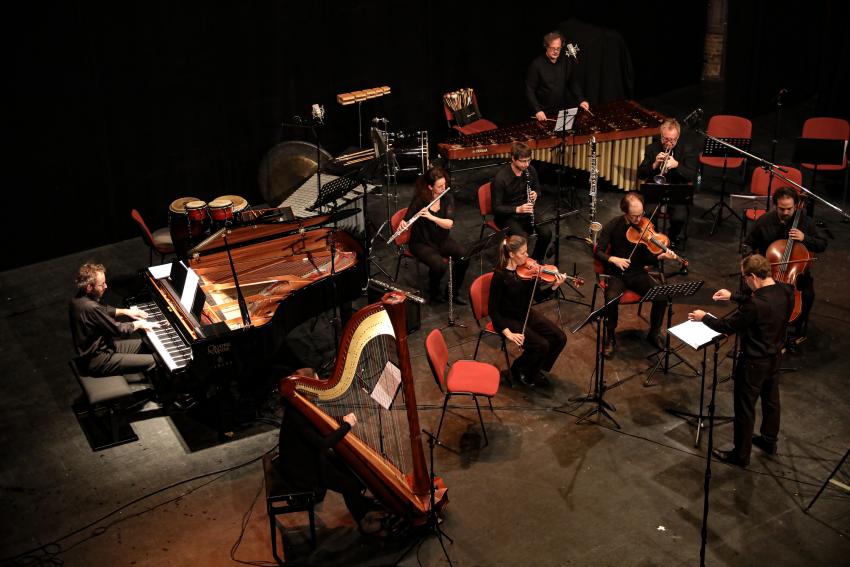
A tribute concert to composers censored by Germany's Third Reich regime
The program is structured around three perspectives: a work representing the art rejected by the Nazis (Entartete Musik): Arnold Schoenberg's magnificent Serenade op 24; rarely performed vocal works by two composers who died in the camps: Viktor Ullmann's Drei ijiddische lieder, and Pavel Haas's Seven Songs in Folk Styles; and a contemporary work composed as a tribute to the victims of the Holocaust, Où est la plaie? by Brussels composer Adrien Tsilogiannis, based on the poem Les Charniers by Eugène Guillevic. The musical worlds are contrasting, but all highly expressive, combining modesty, lightness, pain and existential questioning. The broad sound palette of the instrumental ensemble contributes to the richness of the musical discourse.
Programme
Pavel Haas, Seven Songs, op.18 - (1940)
Seven Song on Slovak Folk Poetry for high voice and piano Op. 18
Poems by Čelakovský
Hans Kràsa, Drei Lieder - (1943)
Textes : A. Rimbaud – V.Nezval
Adrien Tsilogiannis, Où est la plaie ? - (2020)
pour mezzo-soprano, baryton et 7 instruments
Viktor Ullmann, Drei jiddische Lieder, op.53 - (1944)
(mezzo et piano)
Arnold Schoenberg, Sérénade, op.24 pour baryton et septuor - (1923)
pour clarinette, clarinette basse, mandoline, guitare, violon, alto, violoncelle, et une voix d'homme grave.
Ensemble Sturm und Klang
Clara Inglese : mezzo-soprano
Lorenzo Caròla : baryton
Fabian Coomans : piano
Claire Bourdet : violon
Karel Coninx : alto
Catherine Lebrun : violoncelle
Cédric De Bruycker : clarinette
Benjamin Maneyrol : clarinette basse
Jona Kesteleyn : guitare
Johan Corrales : mandoline
Thomas Van Haeperen : direction musicale
*Avec le soutien d'UCLouvain Culture
